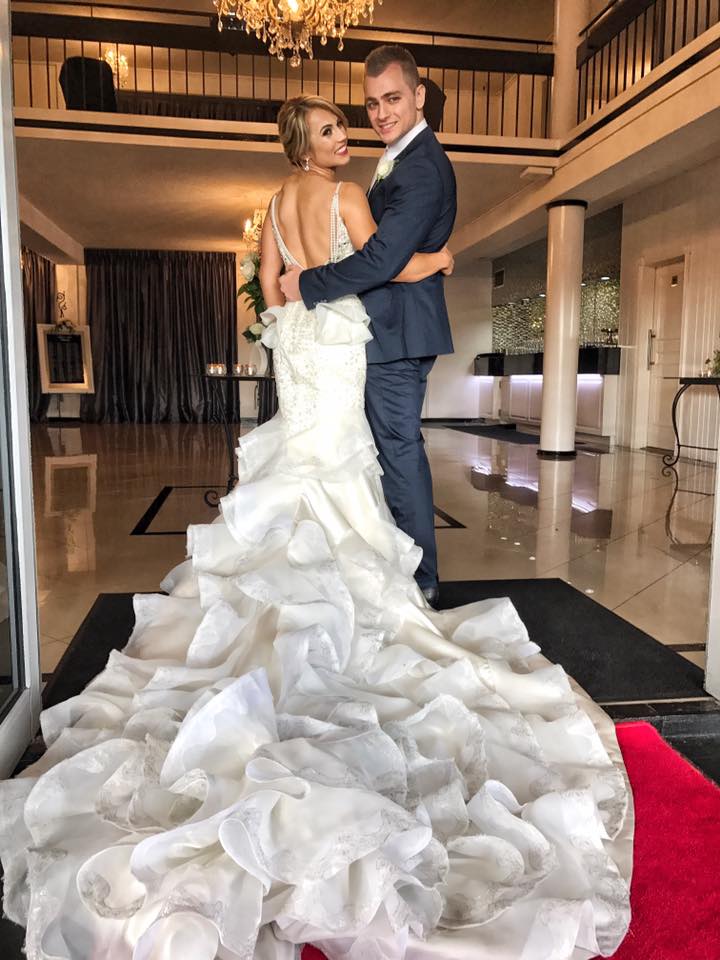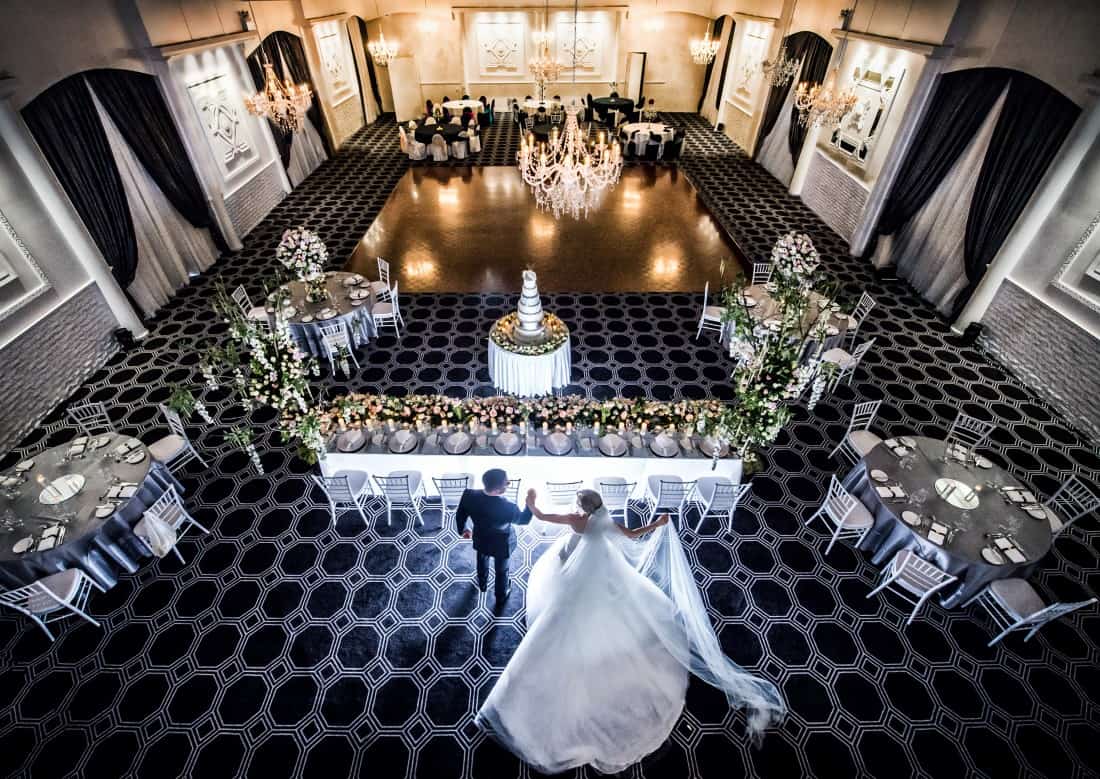Planning a wedding is one of the most significant and joyful moments in a couple’s life, but it can also be one of the most stressful. This is where a wedding planner steps in. A wedding planner helps the couple organise and execute their wedding day with as little stress as possible, ensuring everything runs smoothly. Hiring a professional wedding planner is often a worthwhile investment to ensure everything comes together beautifully on the day.
Let’s Get Straight to the Point
A wedding planner assists couples in organising and executing their wedding day, reducing stress and ensuring everything runs smoothly. They manage tasks like budget planning, vendor coordination, and timeline creation. Planners offer full-service planning, partial planning, day-of coordination, and design-focused services.
They also bring valuable industry connections to help secure vendors and better deals. On the wedding day, planners handle logistics, manage vendors, and solve last-minute issues. When choosing a planner, look for qualities like strong organisational skills, creativity, and effective communication. Hiring a planner is especially helpful if you have a busy schedule, a destination wedding, or a complex venue.
The Role Of A Wedding Planner
A wedding planner is responsible for coordinating and managing the entire wedding process. From initial consultations to understanding the couple’s vision, style, and budget to the final execution on the wedding day, the planner’s role is pivotal. Their responsibilities include:
- Initial Consultation: The wedding planner will sit with the couple to discuss their preferences, themes, and expectations. This includes all pre-wedding events like rehearsals and post-wedding brunches.
- Budget Planning: The planner helps set a realistic budget and presents various service options within that budget. They provide insight into what is possible within the couple’s financial constraints.
- Industry Connections: Professional planners often have access to a network of trusted vendors and venues. They can suggest options that match the couple’s taste, whether it’s a luxurious venue or a vendor that works within a tight budget. They might also secure discounted rates from suppliers.
- Service Agreements: The couple receives a clear agreement outlining the wedding planner’s services, ensuring everyone understands the scope of work and expectations.
How To Choose The Right Wedding Planner?
Choosing the right wedding planner can make all the difference. Here are some tips to help you decide:
- Accessibility and Responsiveness: The planner should be easy to reach and flexible with scheduling.
- Trustworthy Vendor Recommendations: Beware of planners who push specific vendors for financial gain. A good planner will suggest vendors that suit your style and budget without personal incentives.
- Connection with Your Vision: Finding a planner who understands your aesthetic preferences and can help bring your vision to life is important.
- Clear Contracts: Ensure the contract is detailed and outlines all services, costs, and payment schedules.
Key Qualities To Look For In A Wedding Planner
Wedding planners are invaluable for ensuring your big day is everything you dreamed of. Here are some qualities to consider:
- Organisation Skills: A successful wedding planner is highly organised. They’ll create detailed timelines, manage vendor contracts, and track every detail.
- Creativity and Style: If you’re worried about design, a planner with a strong sense of style can help bring your vision to life. They work with florists, designers, and other vendors to create a cohesive look.
- Problem-Solving: Planners are skilled at handling last-minute issues. Whether it’s an absent vendor or a minor crisis, planners take care of everything behind the scenes so the couple can enjoy their day.
- Communication and Negotiation: A good planner acts as a mediator in difficult situations, such as managing family disputes or negotiating contracts with vendors.
Different Types Of Wedding Planning Services
Full-Service Wedding Planning
This is the most comprehensive option, covering every aspect of the wedding from start to finish. The planner will help with venue selection, vendor management, budget planning, and everything else.
Partial Planning
Partial planning might be better if a couple prefers to handle some aspects of the wedding but needs assistance with key components. This service allows the couple to take control of certain tasks while the planner assists with the more complex or time-consuming aspects.
Day-Of-Wedding Coordination
A day-of coordinator is essential for couples who have planned their wedding but need a professional to oversee it. They ensure everything runs smoothly, handling details like setting up the venue, managing the timeline, and coordinating vendors.
Design-Focused Wedding Planning
If aesthetics are a priority, a planner with a strong focus on design can help with the visual elements. These planners work closely with florists, caterers, and stylists to create a cohesive and beautiful wedding environment.
Vendor Resources And Connections
Experienced wedding planners have a network of trusted vendors, from photographers and caterers to florists and venues. Thanks to these relationships, planners can often secure better rates or added services for their clients. Having a planner with reliable vendor connections can save time and reduce stress.
Wedding Day Responsibilities
On the day of the wedding, a planner handles all the logistics. Their duties might include:
- Ensuring vendors arrive on time and are set up correctly.
- Overseeing the venue set-up, from tables to decorations.
- Managing the timeline so that the ceremony and reception run smoothly.
- Handling last-minute emergencies or disruptions.
- Ensuring guests and bridal party members know where to be and when.
- Keeping track of personal items, such as gifts and belongings, ensuring they are returned to the couple safely.
Wedding Planner Duties Breakdown
A wedding planner’s responsibilities can take between 80 and 250 hours. Here’s a summary of what they do:
- Meetings with Vendors: They attend and organise vendor meetings, make recommendations, and negotiate contracts.
- Budget Management: The planner helps allocate the budget appropriately, avoiding unnecessary expenses.
- Timeline Creation: Planners create detailed schedules for the wedding day and ensure everything stays on track.
- Venue Setup and Coordination: They supervise the venue setup on the wedding day and ensure all decorations are placed as planned.
- Managing the Day: From overseeing vendors to ensuring the bridal party is in place, the planner manages all aspects of the wedding day.
When To Hire A Wedding Planner?
If you are considering whether to hire a wedding planner, here are some situations where it’s highly recommended:
- Busy Schedule: If you and your partner have hectic work schedules, a wedding planner can save time by handling the details.
- Destination Wedding: Planning a wedding in a different city or country can be complicated, and a local planner can more easily handle logistics.
- Budget Management: If you need help sticking to a budget, a planner can help you avoid costly mistakes.
- Complex Venue: If your wedding venue isn’t a traditional location, like a hotel or restaurant, you may need extra help with logistics.
Should You Hire A Wedding Planner?
Here are some reasons to hire a wedding planner:
- You have the budget to accommodate one.
- You want your wedding day to be as stress-free as possible.
- You have a tight schedule and limited time to organise the wedding yourself.
- You need help figuring out how to get started with the planning process.
- Your wedding will take place over multiple days or at a destination venue.
- Your wedding is in a non-traditional venue that requires more logistical planning.
A wedding planner is essential in ensuring that a couple’s wedding day unfolds smoothly and stress-free. They handle every detail, from budget management and vendor coordination to creating timelines and overseeing the big day. By leveraging their industry expertise and extensive network of vendors, wedding planners can make even the most complex weddings feel effortless.
Hiring a wedding planner is particularly helpful for those with busy schedules, destination weddings, or intricate venues. Whether you need full-service planning or help on the day, the right planner ensures your wedding is exactly as you envisioned, allowing you to enjoy every moment of your special day without the stress of managing logistics.




